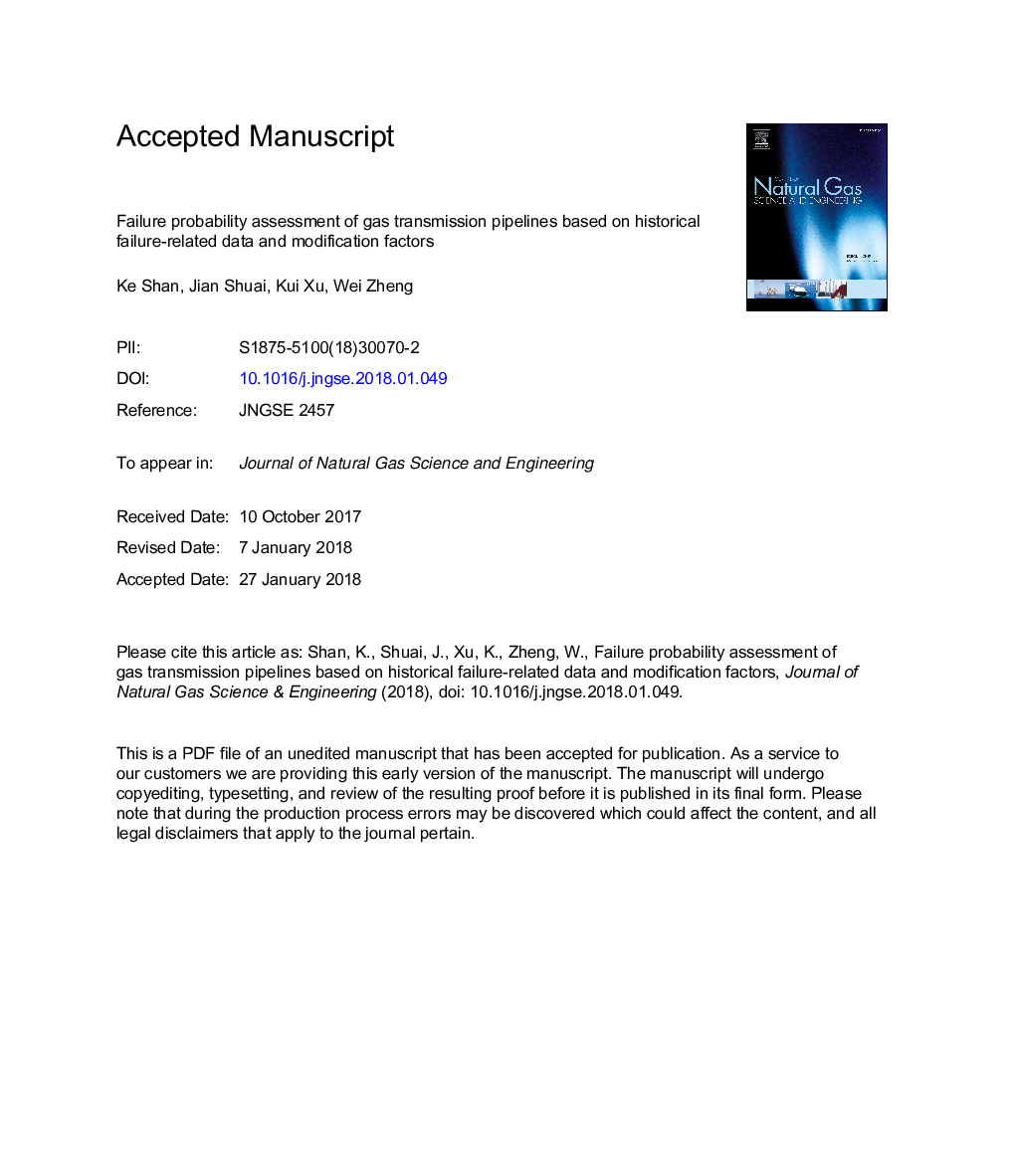| Article ID | Journal | Published Year | Pages | File Type |
|---|---|---|---|---|
| 8128254 | Journal of Natural Gas Science and Engineering | 2018 | 26 Pages |
Abstract
Evaluation of failure probability is one of the core contents of quantitative risk assessment. An assessment model of gas transmission pipelines failure probability based on historical failure-related data and modification factors is established, which combines a quantitative part to integrate available historical failure-related data, with a qualitative analysis to compensate for a potential lack of precise crisp statistical data. The main idea is to use the modification factors to modify the baseline failure frequency. The baseline failure frequency is estimated from the statistical historical failure-related data. The modification factors are calculated from the segment attributes of the target pipeline using algorithms developed from the analysis of statistical data and analytical models supplemented by pipeline evaluation criteria and expert judgment. The constructed model is applied to a long-distance gas transmission pipeline so that the effectiveness of the proposed model could be demonstrated. The prospect is for more efficient risk management by acting both on historical failure-related data and modification factors of gas transmission pipeline systems.
Related Topics
Physical Sciences and Engineering
Earth and Planetary Sciences
Earth and Planetary Sciences (General)
Authors
Ke Shan, Jian Shuai, Kui Xu, Wei Zheng,
